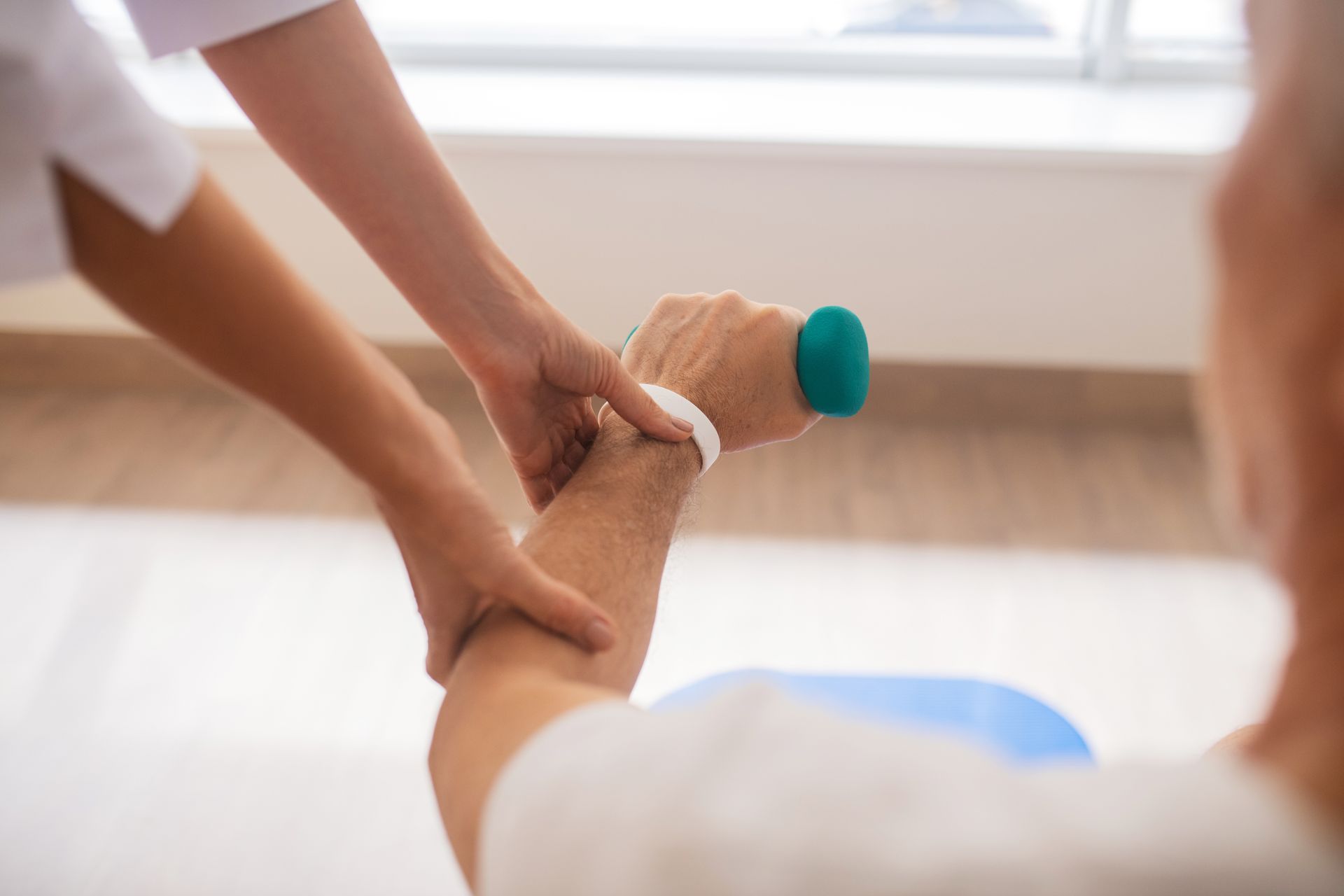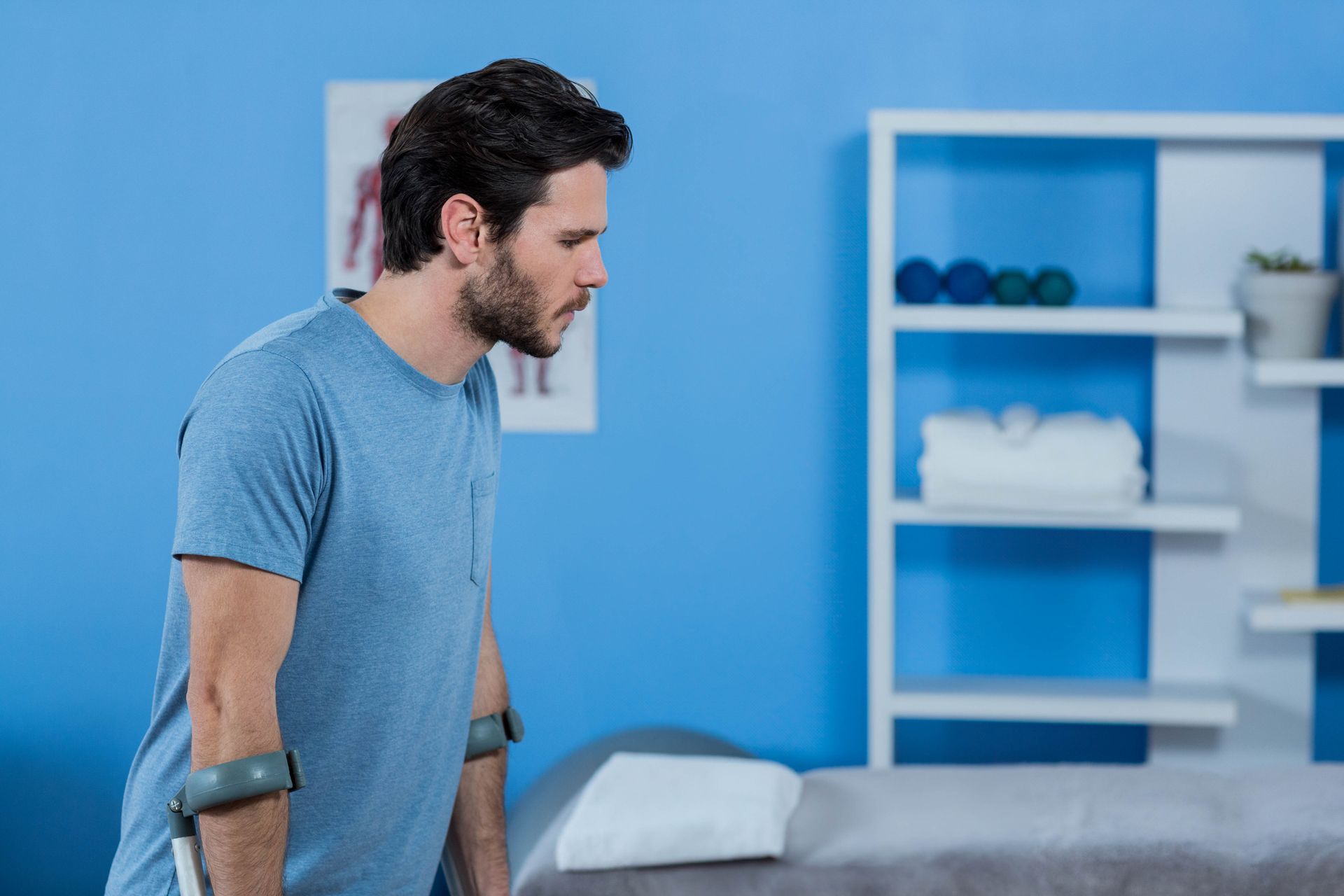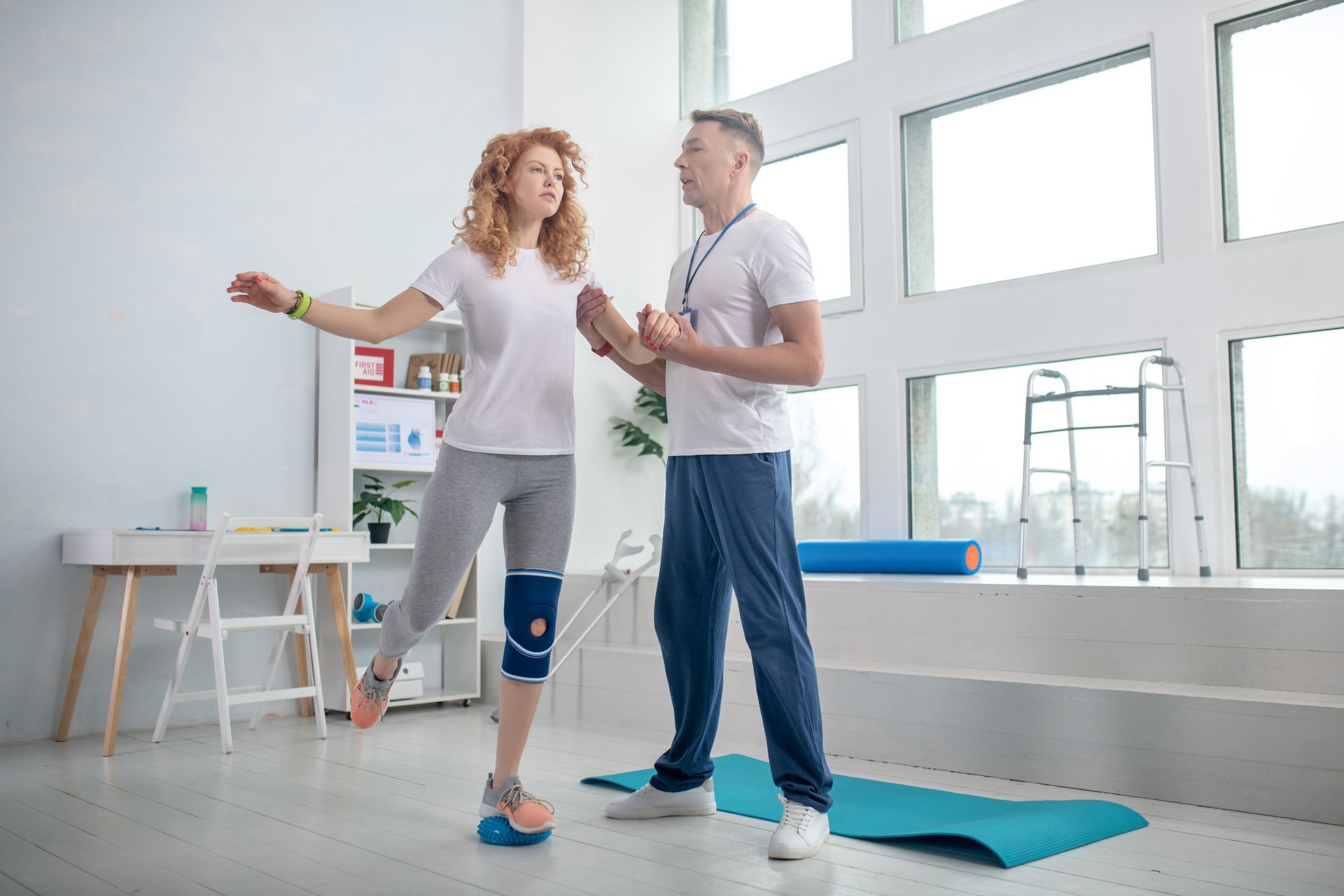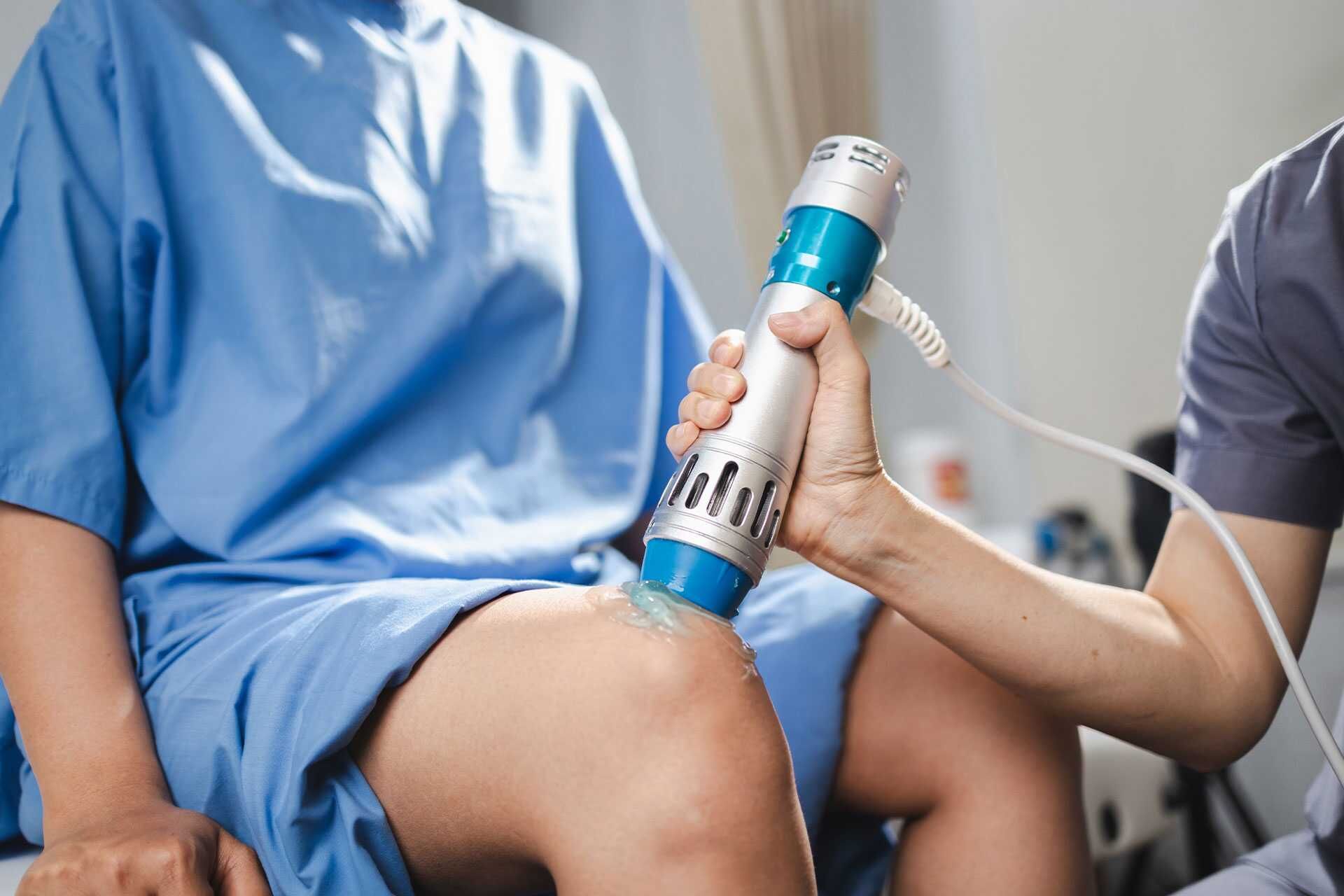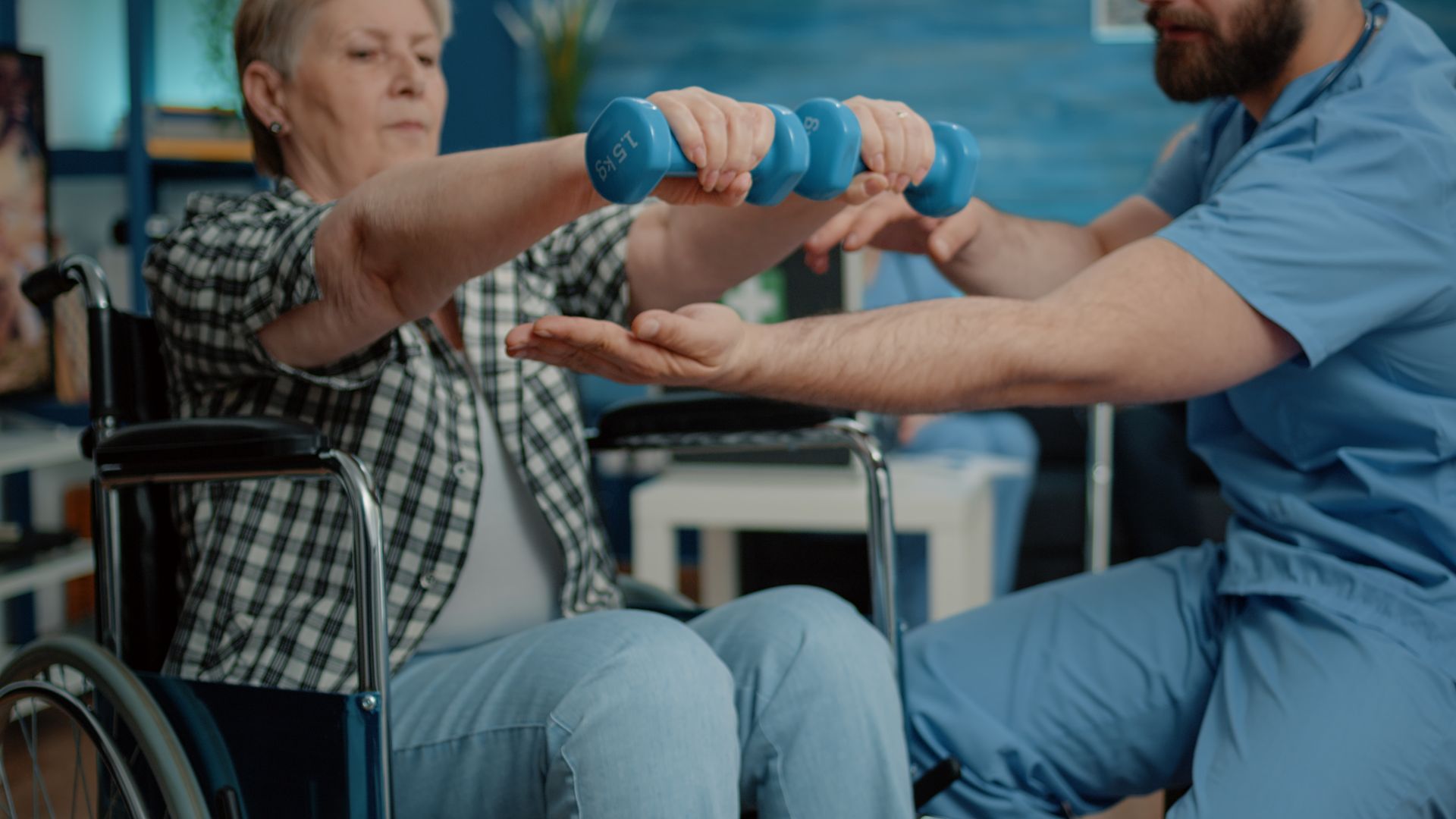Neck Pain, Posture Dysfunction, and Tech Neck: How Desk Work Can Lead to Headaches and Pain
Neck Pain & Tech Neck Relief | Physiotherapy & Chiropractor Mississauga
Do you finish your day with a stiff neck, tight shoulders, or a nagging headache? You’re not alone.
With so much time spent sitting at computers, scrolling on phones, and working from home, neck pain and posture dysfunction have become incredibly common.
At Delta Physiotherapy & Rehab , our Physiotherapy & Chiropractic teams frequently see patients struggling with tech neck , a condition caused by forward head posture and strain on the neck and upper back. This constant downward position can lead to tight muscles, joint stiffness, and cervicogenic headaches (headaches originating from the neck).
And it’s not just the neck , poor posture can also affect the jaw, leading to TMJ (temporomandibular joint) issues such as jaw pain, clicking, or discomfort while chewing.
What Causes Tech Neck and Posture Dysfunction?
The human head weighs around 10–12 pounds in a neutral position. When you tilt it forward 30–60 degrees (as you do when looking at your phone), the pressure on your neck muscles can increase to 40–60 pounds on your spine. Over time, this causes:
🖥️ Muscle fatigue and tightness in the neck and shoulders
📱 Compression in the cervical joints
😣 Poor alignment affecting the jaw and upper back
🪑 Weak postural muscles due to sitting for long hours
💻 Workstation setups that don’t support healthy posture
When the head is consistently forward, it pulls the spine, jaw, and shoulder muscles out of balance — resulting in neck pain, cervicogenic headaches, and TMJ tension.
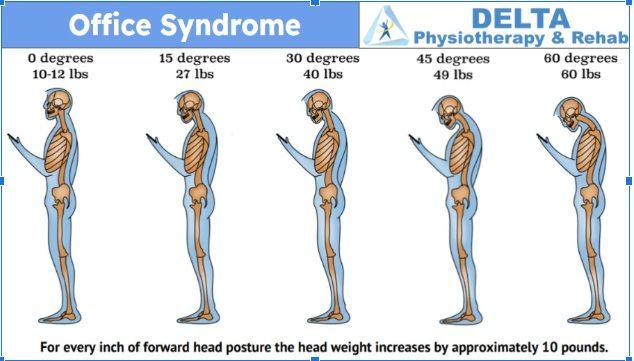
Common Symptoms of Tech Neck and Postural Dysfunction
You may notice one or more of these signs:
- Neck and shoulder stiffness or soreness
- Dull or throbbing headaches at the base of the skull
- Pain between the shoulder blades or down the arms
- Tingling or numbness in the hands
- Jaw pain, tightness, or clicking (TMJ symptoms)
- Dizziness, eye strain, or fatigue
- Rounded shoulders and forward head posture
Ignoring these early signs can lead to chronic discomfort, reduced mobility, and tension headaches that worsen over time.
How Physio Mississauga Can Help
At Delta Physiotherapy & Rehab, our Physiotherapists focus on identifying and treating the root cause of your pain. Through a detailed assessment, we design a personalized plan to relieve pain, restore movement, and strengthen posture-supporting muscles.
Your treatment may include:
- Postural assessment and correction for improved ergonomics at work and home
- Mobilization and Manual therapy to release tight neck, shoulder, and jaw muscle
- Targeted exercises for neck, back, and core stability
- TMJ physiotherapy techniques to ease jaw tension and improve alignment
- Heat, ultrasound, or electrotherapy to reduce inflammation and stiffness
- Education and movement retraining to prevent recurring pain
Physiotherapy helps you move better, feel stronger, and restore balance throughout your spine and jaw.
How Chiropractor Mississauga Care Supports Recovery
Our Chiropractor complements physiotherapy by addressing spinal alignment and joint motion. Chiropractic adjustments help restore proper joint movement, relieve nerve irritation, and correct postural imbalances.
Your chiropractor may provide:
-
Gentle spinal adjustments to realign the neck and upper back
- Joint mobilization and traction techniques for flexibility
- Soft tissue therapy for neck and jaw tension
- Lifestyle and posture advice to maintain long-term results
Together, physiotherapy and chiropractic care offer a comprehensive, non-invasive approach to relieve pain and prevent future flare-ups.
The Link Between Posture and TMJ (Jaw) Issues
Few people realize how closely connected the neck & jaw are. Poor posture, especially forward head or rounded shoulder posture places strain on the muscles that control jaw movement. Over time, this can lead to TMJ Pain, clicking, difficulty chewing, and tension headaches.
At Delta Physiotherapy & Rehab, our physiotherapists and chiropractors assess both the neck and TMJ to ensure that your jaw alignment and posture are working together ,not against each other.
Preventing Tech Neck, Cervicogenic Headaches and Jaw Tension
- You can prevent many posture-related problems with small daily changes:
- Keep your computer monitor at eye level
- Hold your phone up instead of looking down
- Take stretch breaks every 30-45 minutes
- Strengthen your neck , back & shoulder muscles
- Relax your jaw and unclench your teeth throughout the day
Consistency matters , small, mindful changes help maintain comfort and protect your posture.
Start Feeling Better with Delta Physiotherapy and Rehab
If you’re experiencing neck pain, TMJ discomfort, or headaches from desk work, our Physio Mississauga and Chiro Mississauga experts can help. We’ll identify the underlying cause, create a personalized plan, and guide you back to a pain-free, healthy posture.
Visit us :
📍 Delta Physiotherapy Erin Mills (Erin Mills & Dundas )
16-2400 Dundas Street W, Mississauga, ON, L5K 2R8
📍 Delta Physiotherapy Centre Parkway (Near Square One)
38-325 Central Parkway Street W, Mississauga, ON, L5B 3X9
📞 905-822-9898 | 905-270-3086
Learn more: 🌐 www.deltaphysiotherapy.com
For more insights and tips on neck pain, posture, and tech neck, check out our recent Google Business post:
👉 Read it here: Delta Physiotherapy & Rehab Google Post
💬 FAQ
1. Can poor posture cause jaw pain or TMJ issues?
Yes. Poor posture can tighten the muscles that connect your neck and jaw, leading to TMJ tension, pain, or clicking.
2. How can Physiotherapy Mississauga help with neck pain and TMJ?
Physiotherapy helps by improving posture, releasing tight muscles, and realigning the neck and jaw. Specific TMJ exercises can reduce tension and improve movement.
3. What does Chiropractor Mississauga do for tech neck?
Chiropractors help restore spinal alignment, relieve nerve pressure, and correct posture — reducing headaches, neck pain, and tension.
4. How long does recovery take?
Most people feel relief within 2–4 weeks with consistent treatment and home exercises.
5. Do I need both physiotherapy and chiropractic care?
Many patients benefit from combining both treatments. Physiotherapy strengthens muscles and movement, while chiropractic care improves spinal and joint alignment for long-term relief
✨ Don’t wait for the pain to become permanent , take the first step today toward a stronger, healthier you!


